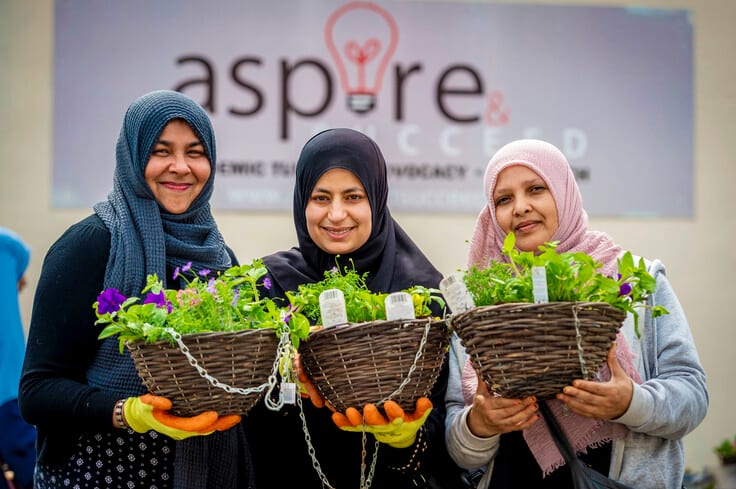
In this blog, Shale Ahmed, Project Director of Aspire and Succeed who support the Local Conversation in Lozells, Birmingham discusses the work that the Local Conversion is doing in engaging residents and providing accurate information around the COVID-19 vaccine, as well as combating misinformation.
"It has been eleven tough months for the country during the pandemic. But throughout the confusion and mixed messaging, the news of a vaccine has given people the hope and confidence that we can beat this virus.
I remember the excitement of the vaccine trials for residents in Lozells as people were yearning for life to return to some form of normality.
From my numerous conversations with residents, people have stressed the importance of protecting the elderly and I approach them as a father, as a son and as a community worker to try to understand the needs of my fellow community neighbours.
However, there is a lot of scepticism about the virus as well as the vaccine that has come from misinformation, particularly during the testing process, which has left residents feeling uneasy. Many have felt that they were being lied to about the amount of people getting tested and the scandal with the low levels of PPE has made people lose trust of any information coming from the government. We have had to fight the narrative that it takes a generation to find a cure and answer some of the questions around the speedy process of the vaccine. We have also had to speak to residents about the effectiveness of the vaccine and answer questions about whether the vaccine was halal for residents who are Muslim.
To combat misinformation and to help our residents access accurate information, we created several initiatives to engage our residents. Luckily, through our networks, we have managed to work with health professionals and have held numerous Q&A sessions in various languages to help people feel at ease. To combat misinformation about COVID-19, we have asked residents to be objective by getting them to fact-check information they receive, and we have extended our support network with weekly wellbeing calls. We have had many COVID-19 champions who played broker roles by being the first points of contact to receive information first-hand from the council and public health agencies on vaccines and fed back to residents.
These champions also played an important role in figuring out what information was needed locally. Because the information on vaccines was not distributed fast enough to combat fears, we decided to make videos and took photos of well-known local figureheads taking the vaccine to encourage the rest of the neighbourhood to protect themselves and their loved ones. Finally, we played an important role in identifying potential locations to become vaccination centres that communities can access with ease, such as faith institutions, community centres and vacant wedding venues.
As we move onto the second stage of the vaccination process, the messaging has become clearer and some of the doubts people initially had about the vaccines and its side effects have been answered by our engagement work and the success of the vaccine rollout. The strongest narrative against the vaccine has been around not trusting the information coming down to us from government, but because of the large network of medical professionals and community champions that we have worked with, we have been able to engage residents and change the narrative. The encouraging sign is that after being in the top five highest infection rates in the city to gradually moving out of the top ten, we are beating the virus and the negative narrative of vaccines which discourages people to take it."
The Local Conversation in Lozells is supported by Aspire and Succeed and funded by People’s Health Trust using money raised through Health Lottery West Midlands.
,